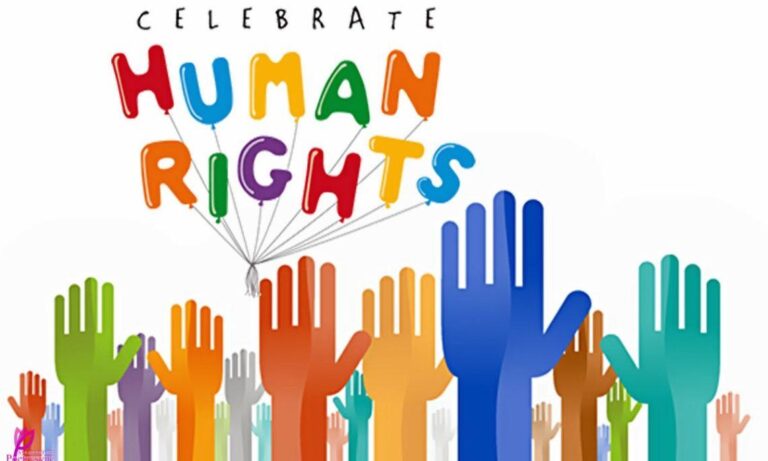The U.S. Department of State has released its 2024 Country Reports on Human Rights Practices, providing a comprehensive assessment of Spain’s human rights situation over the past year. The detailed report highlights key issues ranging from fundamental freedoms and labor rights to judicial independence and minority protections. As Spain continues to navigate complex social and political challenges, the findings offer critical insight into the progress made and areas requiring further attention. This article delves into the main points of the report, shedding light on the state of human rights in Spain as documented by the U.S. government.
Human Rights Landscape in Spain Faces Persistent Challenges
Despite robust legal frameworks, Spain continues to grapple with complex human rights issues that impact diverse communities across the country. Key concerns include ongoing reports of police misconduct during public demonstrations, significant challenges faced by migrant populations in accessing adequate housing and healthcare, and persistent discrimination against Roma and LGBTQ+ groups. Advocacy organizations highlight the gap between legislation and practical enforcement, urging authorities to strengthen accountability mechanisms to ensure rights are upheld in daily life.
Emerging patterns reveal systemic barriers in employment and education that disproportionately affect vulnerable groups, further entrenching inequality. Efforts to combat gender-based violence have seen progress, though activists stress the need for more comprehensive victim support programs and enhanced training for law enforcement. A closer look at recent human rights indicators demonstrates the urgency for Spain to reconcile its commitments with on-the-ground realities through targeted reforms and inclusive policy measures.
- Police accountability: Improved oversight demanded amid reports of excessive force.
- Migrant access: Challenges persist in securing basic social services.
- Discrimination: Roma and LGBTQ+ communities face exclusion in education and employment.
- Gender violence: Expanded victim assistance and prevention programs needed.
| Human Rights Issue | Status | Recommended Action |
|---|---|---|
| Police Misconduct | Recurring reports | Strengthen independent investigations |
| Migrant Services | Unequal access | Increase housing and health resources |
| Discrimination in Employment | High among minorities | Implement anti-bias training |
| Gender-Based Violence | Improving but insufficient | Expand victim protection programs |
Detailed Examination of Civil Liberties and Government Accountability
In 2024, Spain continued to affirm key civil liberties, yet challenges persist in areas of government transparency and public trust. The legal framework upholds freedoms such as speech, assembly, and religion, though recent events have sparked debate over the balance between national security and individual rights. Notably, the government faced criticism for stringent measures involving digital surveillance and limitations on protest activities, raising concerns about potential overreach. Civil society organizations emphasized the importance of maintaining robust safeguards to prevent encroachments on citizens’ rights, especially amid growing geopolitical and social tensions in the region.
Accountability mechanisms remain a focal point as independent oversight bodies actively investigate instances of alleged misconduct, including police abuses and administrative mismanagement. The following table illustrates key indicators related to civil liberties and government accountability in Spain for 2024:
| Indicator | Status | Remarks | ||||||||||
|---|---|---|---|---|---|---|---|---|---|---|---|---|
| Freedom of Assembly | Protected with Restrictions | Permits required; increased monitoring | ||||||||||
| Government Transparency | Moderate | Access to information laws improving | ||||||||||
| Police Accountability | Active Investigations | Cases of excessive force under review | ||||||||||
| Policy Recommendations to Strengthen Human Rights Protections in Spain
To enhance the protection of human rights in Spain, it is imperative that lawmakers prioritize legislative reforms aimed at eliminating systemic barriers faced by vulnerable groups. Strengthening anti-discrimination laws and ensuring rigorous enforcement will empower marginalized communities, particularly immigrants and ethnic minorities, to access equal opportunities without fear of prejudice. Furthermore, improving transparency and accountability mechanisms within law enforcement agencies is essential to curb instances of abuse and uphold the rule of law. Equally critical is the allocation of increased resources to public institutions responsible for safeguarding fundamental rights. This includes expanding funding for independent human rights bodies and civil society organizations focused on advocacy and monitoring. Policy efforts should also embrace comprehensive training programs for judicial and law enforcement personnel to foster a culture of respect and understanding toward human rights standards. Key areas of focus include:
The Way ForwardIn summary, the 2024 Country Reports on Human Rights Practices provide a detailed examination of Spain’s human rights landscape over the past year. While highlighting progress in areas such as judicial reforms and protections for marginalized groups, the report also underscores ongoing challenges, including concerns over freedom of expression and treatment of migrants. As Spain continues navigating these complex issues, the findings of the U.S. Department of State serve as a critical resource for policymakers, activists, and international observers committed to advancing human rights. |




